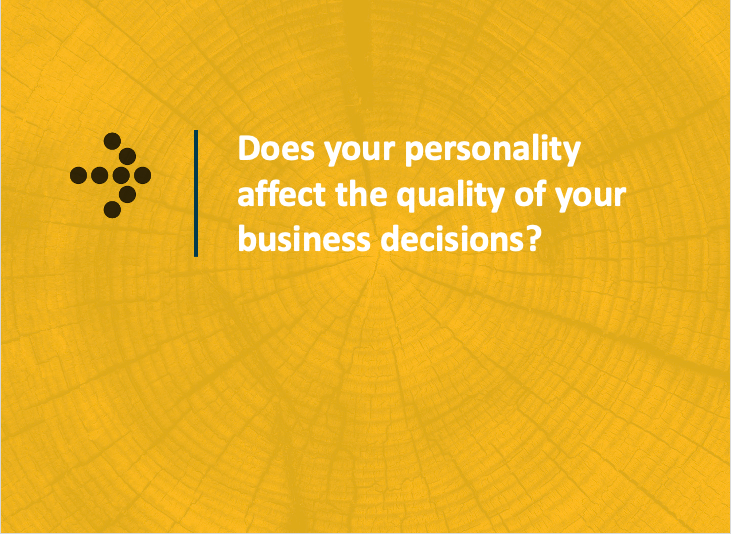Does your personality affect the quality of your business decisions?

Research by Evalex into the decision-making capabilities of more than 500 managers reveals some interesting findings. Most notably, our research reveals that certain personality traits are predictors of decision-making capability, and therefore can predict the level at which an individual can function within an organisation.
“Using the Wizard Statistical program, we discovered strong correlation coefficients, both positive and negative, between certain personality traits and the ability to make effective business decisions,” explains Evalex CEO Pieter Bronkhorst. “Since decision effectiveness is a strong indicator of performance at a certain level of work – the better you are at making decisions, the better you’ll perform in more senior roles – we are now able to use personality as a predictor of performance.”
Some of the findings are fairly obvious, such as the fact that people who are long-term focused tend to be better at problem solving. And the converse also holds true: People who are detail oriented tend to be less good at making decisions. Some of the findings require a little bit of unpacking, though, like the fact that people-oriented people are less likely to be good analytical decision-makers.
“Making decisions at upper management level is a lonely process,” says Pieter. “Even though leaders who adopt a more collaborative approach to decision-making might appear to be better at it, the question must be asked… are they actually the ones making the decisions? Ultimately these leaders may simply be obeying the voice of the masses rather than making decisions themselves.”
Some of the other interesting take-outs:
- People with a need to control tend to be better at analysing problems and making decisions
- Initiators are better at making decisions
- People with a strong need to affiliate and belong, and who are extroverted, score negative. People-oriented people don’t do as well in analytical decision making as people who are more introverted
- Those with an interest in strategic thinking and operations control are likely to be more effective in decision making.
- Decision-making also correlates highly with cognitive ability and knowledge of economics, procurement, financial management, IT, etc.
- If you’re very admin-oriented, cost-conscious and day-to-day focused, chances are you are going to be less effective at making decisions
Detail-oriented people are not good decision makers because they don’t give themselves the opportunity to step back from the question and think - Introverted people are better at problem solving than someone who is collaborative and involves everyone in the process
- From a cognitive ability point of view, strong deductive and numerical reasoning abilities facilitate effective decision making while abstract and contextual reasoning play a neutral role
Evalex’s Leadership Assessment consists of a range of management simulations to assess competence and psychometrics to assess personal attributes. It provides a number of key conclusions about a manager, such as level of position s/he can function at, ideal job types, ideal company initiatives to get involved in, strengths, development areas and inhibitors to performance. It uses this information to allocate one of 27 talent classifications with guidelines as to career development.